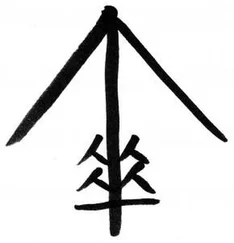But she was not going to accept that he was gone until she had seen his body. The destitute and the humble were as powerless before hope as the emperor had been.
“Pa will be back when the sorghum is ready for the harvest,” she whispered to the new baby after feedings. Aki called the baby Mimi because the way the baby smacked her lips and rooted for milk reminded her of a kitten. “I know he’ll have so many great stories to tell you.”
“My Mimi- tika , don’t you worry. Papa’ll be home soon, b’fore the next flurry,” Aki sang in lullabies. “He’ll give you piggyback rides and pretend to be your ship in a raging sea.”
“I think he’ll be home before the end of the summer. A year is a long time away at sea,” Aki said, her voice singsongy with false cheer. “Maybe he was rescued by some pirates, and he’s been regaling them with tales of adventure, like he used to do with the other fishermen on winter nights.”
“You’re already two! Papa is going to be so impressed when he sees you.” Then Aki sighed when she thought no one could hear her.
She combed the beaches for wreckage every morning, and she continued to ask the crews of the fishing boats returning home if they’d seen anything while out at sea. She prayed to Lord Kiji and Lord Tazu every evening.
Once a year, when she went to the markets of Daye after the fall harvest to raise the rent for her landlord, she inquired at the governor’s mansion for news of captured pirates and whether any of them matched the description of her husband. The officials shooed her away like a buzzing fly. They had more important things to worry about: A new emperor, Erishi, was on the throne, and there were rumors of distant rebellions. There was no time to deal with a crazy woman who refused to accept the fact of her husband’s death when so many had already died in much less mysterious ways.
After leaving the governor’s mansion, Aki also made sure to stop by the shrine for Lord Kiji to make an offering and seek advice. The monks and nuns told her to be patient and to trust in the gods, but they often abandoned her, sometimes midsentence, to attend to the well-dressed masters and mistresses who came into the shrine bearing chests filled with gifts for Lord Kiji and his attendants.
Like most children of the poor, Mimi was in the fields and on the beach helping her mother as soon as she could walk.
In spring, while her mother and brothers, who were almost a dozen years older, pulled the plow, she toddled after, pushing the sorghum and millet seeds into the soil step after step. In summer, she pulled fat caterpillars off the leaves in her mother’s vegetable garden, crushed the heads and dropped the still-wriggling bodies into a lotus-leaf pouch so that they could be roasted later as a snack—this was how the poor who could not afford meat satisfied their craving for something savory. During fishing season, even before she was old enough to go out as an apprentice to the other fishermen, she patched nets and helped prepare the fish for drying and paste making, wincing as the sharp scales sliced her palms and the salt stung her fingers—until calluses covered her hands so that they looked like taros dug out of the ground.
“Your hands look just like mine,” said her mother. It was neither praise nor lament, but a statement of fact. Mimi agreed that her mother’s assessment was correct, though her hands were much smaller.
She wore the clothes that her two brothers had long outgrown, which were now barely more than rags. She made her own shoes out of bits of driftwood tied to her feet with spare fishing lines. She never knew the texture of silk, though she saw the sons and daughters of the wealthy pass by their field on horses sometimes, the hems of the iridescent robes and dresses fluttering like pieces of clouds torn from a sunset.
Mimi’s life was no different from the lives of the innumerable children of the peasantry all over Dara. It was the fate of the poor to toil and endure, wasn’t it?
But in play, Mimi stood out. It wasn’t that she was unfriendly, but she seemed to have trouble fitting into the subtle web of power and hierarchy that held sway among children at play. While the other children of the village chased each other through the fields and had mud fights and elected kings and queens and reenacted the drama of society, she preferred to wander by herself, staring up at clouds drifting across the sky or watching the surf gently pounding the beach.
“What are you looking at?” the other children sometimes asked.
“I’m listening to the wind and the sea,” Mimi answered. “Can’t you hear it? They’re arguing again… and now they’re making up jokes to tell each other.”
That was the other thing about Mimi, she could talk. She was conversing with her mother in complete sentences long before her second birthday, and she listened to conversations between adults with understanding in her eyes. Everyone remarked on her cleverness.
Perhaps the child is destined to speak to the gods, Aki thought. There were many legends of great priests and priestesses and monks and nuns being able to discern the will of the gods from the signs they left in nature. But she put the thought out of her mind immediately. She couldn’t even afford to send any of her children to the village schoolmaster, let alone make the contribution to the Temple of Kiji required of a novice.
Then came the rebellion against Emperor Erishi and the Xana Empire, and new kings sprouted all over Dara like bamboo shoots after spring rain. War raged throughout the islands, though Dasu was thankfully spared the worst of it. When the Marshal of Xana, Kindo Marana, gave the call, many young men from this small island in the Xana heartland joined the army to put down the rebellion on the Big Island. Some went in search of glory; some went for food and pay; still others were taken by the army regardless of their wishes—including Mimi’s brothers.
None of the young men ever returned.
“My sons will come home with their father,” Aki said. She prayed even harder. Sometimes Mimi prayed with her. All the men in their lives were gone, and what else could they do? Hope was the currency that never ran out, and it was the fate of the poor to toil and endure, wasn’t it?
Mimi tried to listen for signs in the wind and the sea, to read the tides and the clouds. Did the gods hear their prayers? She wasn’t sure. The rumbling of the gods seemed to tell her their mood, but their speech was maddeningly just beyond comprehension. What did it mean that the winds that carried the voice of Kiji, patron of Xana, seemed to be filled with anger and despair while the tides that spoke for Tazu, the god of confusion and disarray, grew in wild pleasure? What was the import of this particular utterance? Of this other turn of phrase?
She strained to make sense of the world, but the world was shrouded in a veil that could not be pierced.
When Mimi was five, she woke up one night, disoriented. Her mother was soundly asleep by her side, and she couldn’t remember the dream that had awakened her. She felt a premonition of something important happening beyond the walls of the hut, and she got out of bed, tiptoed her way to the door, and slipped out.
The sky was completely dark, with no moon and no stars. A faint breeze came from the sea, carrying the familiar briny smell. But out on the northern horizon, where the sea met the sky, flashes of lightning flickered, and the distant rumbling of thunder came to her, delayed and muffled.
Читать дальше













